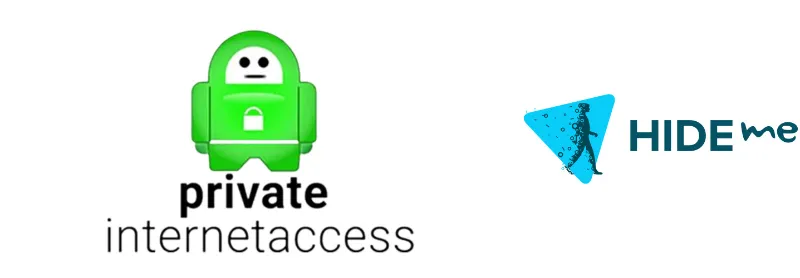Have you ever wondered, “Can your company see what websites you visit on your phone?” You’ve landed in the right spot if you’re nodding your head.
In this digital age, it’s no secret that your online privacy can be under threat, even from your employer.
As intimidating as it sounds, your browsing history on your personal phone could potentially be visible to your company under certain circumstances.
We’re here to shed some light on this murky area, and offer effective solutions to protect your privacy.
Let’s dive into the world of workplace surveillance, internet privacy, and, most importantly, how to maintain your privacy in the digital realm.
Fun Fact #1: Did you know that according to a 2020 report by the American Management Association, almost 80% of major companies admitted to monitoring employee communications and activities on the job? That's quite a figure!
- Quick Answer: Can Your Company See What Websites You Visit on Your Phone?
- How Companies May Monitor Internet Usage
- What Companies Can Actually See
- Legal Aspects of Employee Monitoring
- Ethical Implications of Employee Monitoring
- How to Prevent Your Company From Seeing What Websites You Visit
- Frequently Asked Questions (FAQ)
- Conclusion
Quick Answer: Can Your Company See What Websites You Visit on Your Phone?
Short answer? It depends.
If you’re using a company-provided phone, your employer could potentially have access to your browsing history.
Even if you’re using your personal phone, if it’s connected to your company’s Wi-Fi or VPN, they might still be able to track your online activity.
However, if you’re using your personal phone on your own home or public network, it’s much less likely for your employer to access your browsing history.
But this is only as long as you haven’t installed any company monitoring software on your personal device.
How Companies May Monitor Internet Usage
While it might seem daunting, employers do have methods to monitor internet usage, but the extent of what they can see often depends on the device you’re using and how you’re connected to the internet.
Here’s a closer look:
Company-Owned Devices
When you’re using a device provided by your company, it’s safe to assume that they may have access to your browsing history.
Companies often install employee monitoring software to keep tabs on what their employees are doing during work hours.
This software can sometimes track your web browsing, application usage, emails, and even keystrokes.
Remember, it’s typically best to stick to work-related activities when using a company device. Save your personal browsing for your personal device.
Personal Devices on Company Network
If you’re using your personal device but are connected to your company’s Wi-Fi or VPN, they may still be able to see your online activity.
This is because your internet traffic is passing through the company’s network, and they have the tools to monitor that traffic.
However, there’s a caveat. “Can my employer see my browsing history when I’m not on their network?” you might ask.
If you’re off their network, the likelihood they can monitor your activity decreases significantly, unless they’ve installed monitoring software on your personal device.
What Companies Can Actually See
So we’ve determined that companies have the ability to monitor your internet activity, but what can they actually see? Here’s a breakdown:
Browsing History
If you’re using a company-owned device or you’re connected to the company’s network, your employer can potentially view your browsing history.
However, if you’re using a personal device off the company network, this becomes much less likely, unless there’s monitoring software installed on your device.
App Usage
Employers can often see what apps you’re using on company devices or on your personal devices if they’re connected to the company’s network.
They can also see how much time you spend on these apps, but their content may not always be accessible.
Location Data
Some companies use location tracking in their company-owned devices for security and logistics. So, they could access your location data if you’re using a company phone.
However, this shouldn’t worry you if you’re a stickler for work-life separation. Companies usually don’t track location data on personal devices unless it’s part of their policy and you’ve been informed beforehand.
“But can my employer monitor my personal device?” you might wonder. While it’s technically possible, it’s not as common and is typically surrounded by strict legal and ethical boundaries.
Legal Aspects of Employee Monitoring
There’s no denying that the idea of your employer potentially peeking into your browsing history can be unsettling. But it begs the question, “Is it legal for employers to monitor your phone?”
The answer can be complex, as it often varies depending on your location and the specific circumstances. In most cases, here’s what you need to know:
Employers generally have the legal right to monitor work-related activities on company-owned devices. This includes your browsing history, app usage, emails, and sometimes even messages.
However, they must usually inform you about their monitoring policies beforehand.
On the flip side, monitoring personal devices is a different matter. Unless your company has a clear BYOD (Bring Your Own Device) policy that you’ve agreed to, they’re typically not permitted to monitor your personal device.
It’s always a good idea to check your company’s policies on this matter, or consult with a legal professional if you have any concerns.
After all, understanding your rights is an important step towards safeguarding your privacy.
Ethical Implications of Employee Monitoring
Beyond the legalities, the monitoring of employees’ online activities on their devices also raises a few ethical questions. Let’s unpack some of these issues:
Balance of Privacy and Productivity
While employers might argue that monitoring is necessary for maintaining productivity, it’s crucial to strike a balance.
Monitoring can easily cross the line into invasion of privacy if it’s too intrusive or is done without proper transparency.
Trust and Morale
Excessive surveillance can erode trust between employees and their employers and may even lead to decreased morale.
A trusting work environment often results in higher productivity and job satisfaction than a highly monitored one.
Consent and Awareness
It’s ethically important for employees to be aware of and consent to any monitoring practices. This means employers should clarify their policies and allow employees to ask questions or voice concerns.
These ethical considerations are significant in the ongoing conversation about workplace surveillance and employee privacy rights.
How to Prevent Your Company From Seeing What Websites You Visit
In case you’re worried about your online privacy, there are a few steps you can take to reduce the chances of your employer seeing your browsing history:
Method 1. Use Your Personal Device on a Non-Company Network
If you’re on your personal device and not connected to the company’s network (including VPN), your employer typically cannot see your browsing history.
So, using your own data or home Wi-Fi for personal browsing is a good idea.
Method 2. Utilize a Virtual Private Network (VPN)
A VPN can provide an extra layer of privacy by encrypting your internet connection and hiding your online activities.
However, it’s crucial to check whether using a VPN is in line with your company’s IT policies, as it could potentially violate them.
Method 3. Incognito Mode
While this won’t hide your browsing history from your employer if you’re on their network, it can keep your browsing history off your local device.
This is helpful if you share your device with others.
Remember, these methods are not foolproof, and the best practice is to use your work devices for work purposes and personal devices for personal purposes, maintaining a clear boundary between the two.
Frequently Asked Questions (FAQ)
In this section, we’ll address some commonly asked questions about whether your company can see what websites you visit on your phone.
Q1: Can your employer see your browsing history on your personal phone?
Generally, no. Unless your personal phone is connected to your company’s network or if there’s monitoring software installed on your device, your employer cannot see your browsing history.
Q2: Can my employer see my browsing history when I’m not on their network?
Typically, no. They cannot monitor your internet usage when you’re not on your company’s network. However, if your employer has installed monitoring software on your device, they might be able to see your browsing history.
Q3: Can my employer monitor my personal device?
Technically, yes, but it’s not as common as monitoring company-owned devices. This would require installing monitoring software on your personal device and is generally governed by strict legal and ethical rules.
Q4: How do I hide websites visited from my employer?
There are a few strategies you could adopt:
- Avoid using your company’s network for personal browsing.
- Use a VPN, but be aware that this might violate your company’s IT policies.
- Use Incognito or Private mode on your browser, though this only keeps your browsing history off your local device, not from your network administrator.
Remember, it’s always best to check with your company’s policies and guidelines regarding the use of internet during work hours.
Conclusion
While employers generally have the legal right to monitor work-related activities on company-owned devices, personal devices are quite different.
Ethical considerations are also paramount, as a balance must be struck between ensuring productivity and respecting privacy.
Above all, communication and understanding of your company’s policies are essential in navigating this digital landscape.
And remember, it’s always best practice to use work devices for work purposes and personal devices for personal browsing, thus maintaining a clear boundary between the two.









